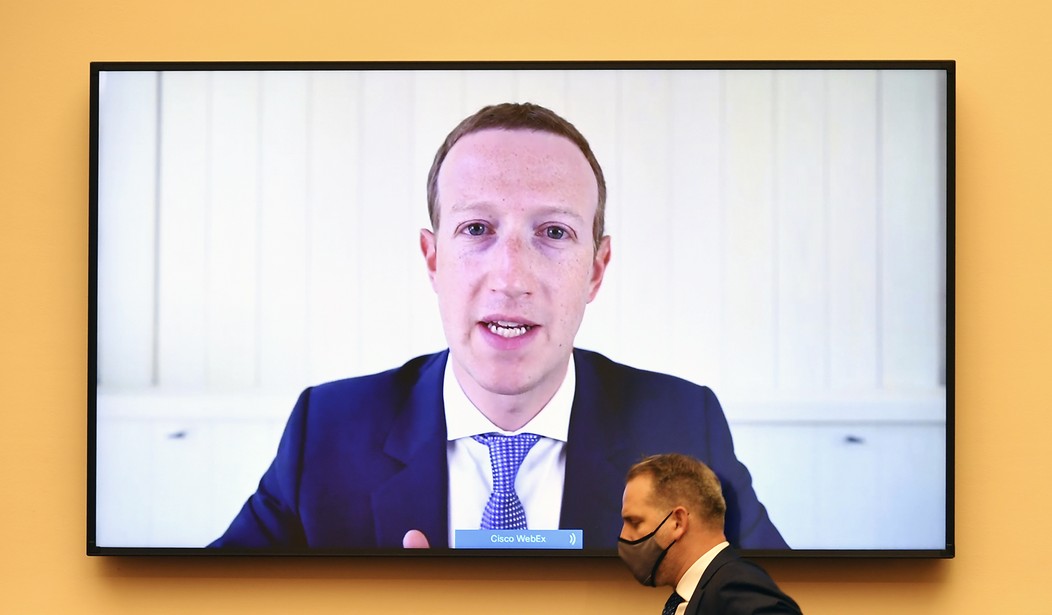Michael Shellenberger–who is a great follow on Twitter, by the way–has another thought-provoking thread on how censorship completely distorts people’s perception of reality.
What triggered his discussion was a striking fact: the blockbuster story that he and Matt Taibbi published that reveals the names of the Patients Zero (there were 3, all from the Wuhan Institute of Virology) of the COVID pandemic.
The story was a big hit on Twitter–more than 5 million people have read it so far (and I, of course, wrote an outstanding piece on it yesterday), and it was shared more than 7000 times on the platform.
On Facebook? 5 people have shared it. Because Facebook has buried the story and has hidden it from people unless they poke around explicitly to find it.
According to Pew Research Center, 70% of Americans use Facebook, and 31% regularly get their news from the site. I suspect the latter number underestimates the real news relevance of Facebook, but even if this number is true then the impact is enormous. Silencing people on Facebook is an enormous hit to how news spreads. And, of course, when Twitter was in the censorship business a blackout on both platforms is a killer.
When was the last time you watched the evening news or browsed an entire newspaper? Social media is how news bubbles to the top for most people. That has its upsides and downsides, but it is a reality nonetheless.
Ten months later, Facebook and Twitter censored @nypost for another accurate article, this time about Hunter Biden's laptop https://t.co/fdFpCiEl12
— Michael Shellenberger (@shellenberger) June 14, 2023
Shellenberger was not complaining particularly about the censorship of his story. By now he is used to it. But rather uses his experience as a launching point to discuss how censorship completely distorts our view of the world.
What we see and don’t see shapes our perceptions of reality and of what is plausible. If we hear something is debunked or don’t hear it at all, data that may be important gets filtered out.
Facebook strives to be the great filter, as does YouTube (another primary source of news information for people), and Twitter did before.
In 2020 these platforms censored huge amounts of true information, even calling it debunked while amplifying absolutely false information as authoritative. The New York Times and Washington Post both published information that has, since, been proven wrong, and Facebook amplified it. The New York Post, on the other hand, published true information and had their stories censored.
The COVID lab leak theory, for instance, was labeled “false information,” despite it now being well-established that it is true. Even the State Department labeled it the most likely explanation for COVID’s spread, years ago, and Facebook was still censoring it as debunked misinformation.
We all know the Hunter Biden laptop saga, and how the Steele Dossier was pushed as reliable and devastating to Trump despite being false.
Here's the data showing declining disasters as a result of fewer deaths and declining costs from extreme weather events. This data is uncontroversial and uncontested. And yet Facebook continues to censor me for sharing this accurate information. pic.twitter.com/bO7Q4CFppE
— Michael Shellenberger (@shellenberger) June 14, 2023
Ironically, in defending itself against a lawsuit from John Stossel who sued over having his own content labeled misinformation, Facebook came up with the defense that its claims about the veracity of information are not meant to be statements of fact, but the mere expression of but one more opinion.
Legally, this defense worked. The case against Facebook was dismissed. But of course, the defense is also an admission that Facebook’s labeling of something as “misinformation” is nothing more than an expression of opinion and that they actually mean something more like “We don’t believe it, but who knows?”
So shut up and don’t disagree with us.
Of course, if you are as big and as profitable as Facebook, you have the luxury of having one’s cake and eating everybody else’s too.
It may seem obvious that all these companies are corrupt shills for the Establishment, but for many of the users of these platforms, it can’t be obvious–because they never see the evidence.
That is exactly how they want it.







Join the conversation as a VIP Member